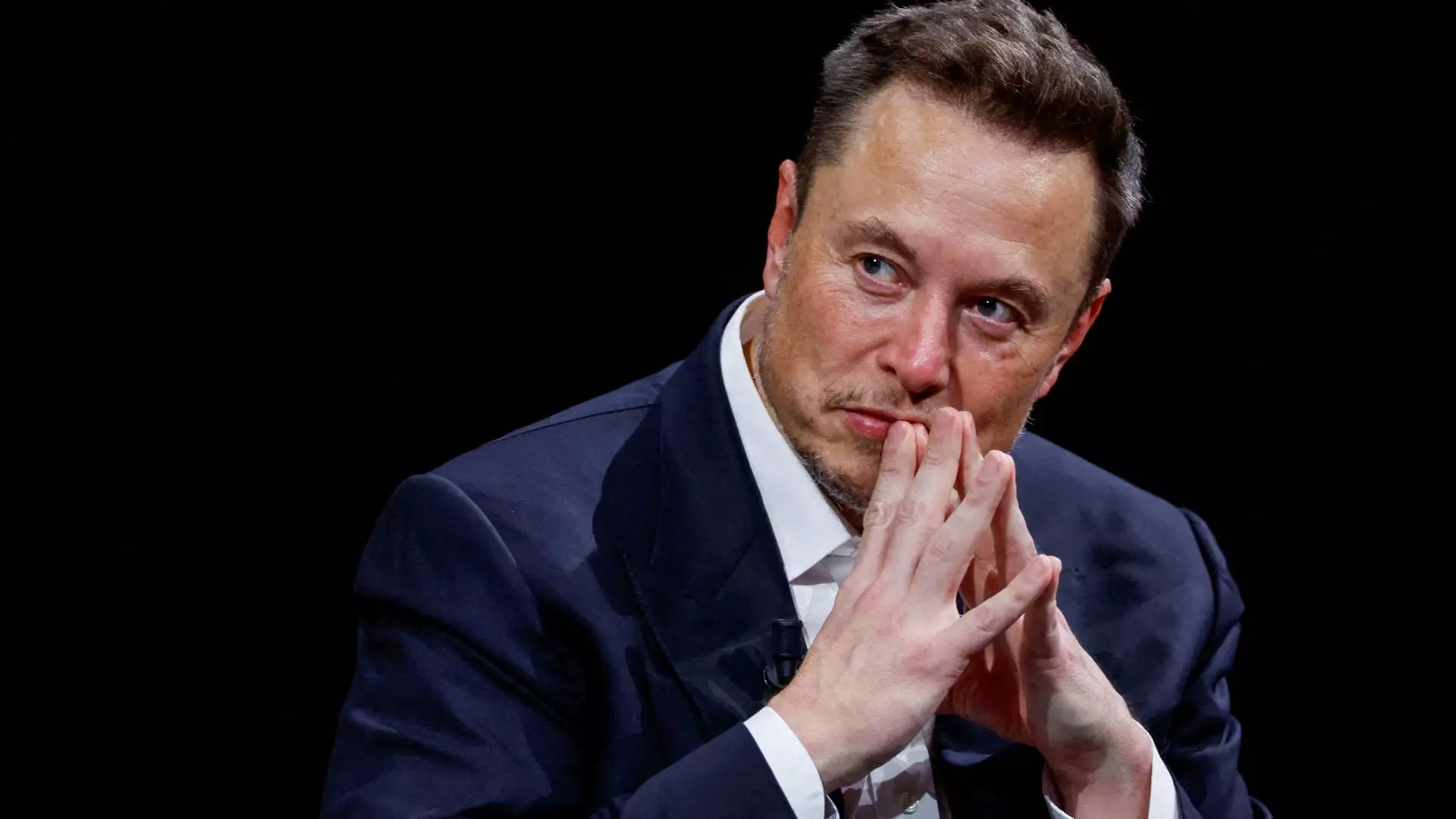Elon Musk’s recent award of an eye-watering 96 million shares demonstrates not just personal ambition but the deep entrenchment of wealth and influence in the modern corporate landscape. While shareholders may view this as a reward for Musk’s leadership, it raises pressing questions about fairness and accountability in corporate governance. An emblem of capitalism’s excesses, such rewards serve to reinforce the disconnect between executive gains and the broader public interest. The fact that Tesla’s board approved such a massive compensation package amidst ongoing legal controversies suggests a troubling prioritization of individual gain over transparency and ethical stewardship.
Musk’s hefty incentives seem disconnected from the reality facing Tesla’s stakeholders and consumers. As the company grapples with declining sales, waning government incentives, and an increasingly competitive automotive market, these executive rewards appear more as a reflection of Musk’s personal brand than a commitment to sustainable growth or innovation. Such high stakes for one individual threaten to distort corporate priorities, shifting focus from building value for all shareholders to consolidating Musk’s own control and wealth.
Legal Struggles and Corporate Governance: A Questionable Legitimacy
The legal battles surrounding Musk’s previous compensation plans cast a long shadow over Tesla’s governance practices. The Delaware court’s critical ruling revealed that Musk’s 2018 package was granted through questionable means, chiefly the withholding of crucial information from shareholders. This underhanded maneuvering underscores a fundamental flaw: in pursuit of executive loyalty and control, corporate transparency is often compromised. Instead of inspiring confidence, such issues breed skepticism about the fairness of Musk’s compensation and the integrity of Tesla’s leadership.
Musk’s vehement opposition to Delaware’s legal authority and his campaign to relocate Tesla’s incorporation to Texas only deepen suspicions about his willingness to circumvent regulatory norms. This antagonistic stance towards established legal frameworks rather than working within them suggests a desire to sidestep oversight, further weakening shareholder trust. Musk’s stance appears to prioritize personal control and legal loopholes over the checks and balances essential in responsible corporate governance.
Hidden Ventures and Political Maneuvering: The Ethical Dilemmas
Beyond Tesla, Musk’s formation of the AI startup xAI and its opaque relationship with Tesla illustrates a troubling pattern: the blending of corporate interests with personal ambitions and political influence. Musk’s reluctance to disclose xAI’s existence or its connections to Tesla raises red flags regarding transparency and potential conflicts of interest. As Musk pushes for greater control over Tesla and hints at launching new ventures unrelated to the company’s core mission, the broader question emerges: at what cost does this consolidation of power come?
Musk’s political engagements further complicate this picture. His support for former President Trump, plus his recent efforts to form a new political party, suggest a level of political ambition that borders on self-interest. These actions have tarnished Tesla’s image, especially in markets with more stringent regulatory environments. The mix of corporate dominance and partisan maneuvering risks alienating consumers and investors who seek responsible leadership amid a rapidly changing socio-political landscape.
The Threat to Long-term Stability
Tesla’s recent financial reports forecast challenging times ahead, with declining sales and a potential loss of vital government incentives. Musk’s focus on personal control and his controversial political activities threaten to undermine investor confidence and destabilize the company’s future. His outspoken stance on AI and robotics, coupled with the secretive development of xAI, signal a shift towards personal projects that may diverge from Tesla’s long-term vision.
Such decisions reflect a broader tendency among certain billionaires to prioritize personal legacy and influence over sustainable, inclusive growth. For Tesla to truly thrive amid mounting external pressures, it cannot afford to be tethered solely to Musk’s personal ambitions. Instead, the company needs a governance structure that balances innovation with accountability—something that currently seems elusive given Musk’s aggressive pursuit of control and influence.


Leave a Reply